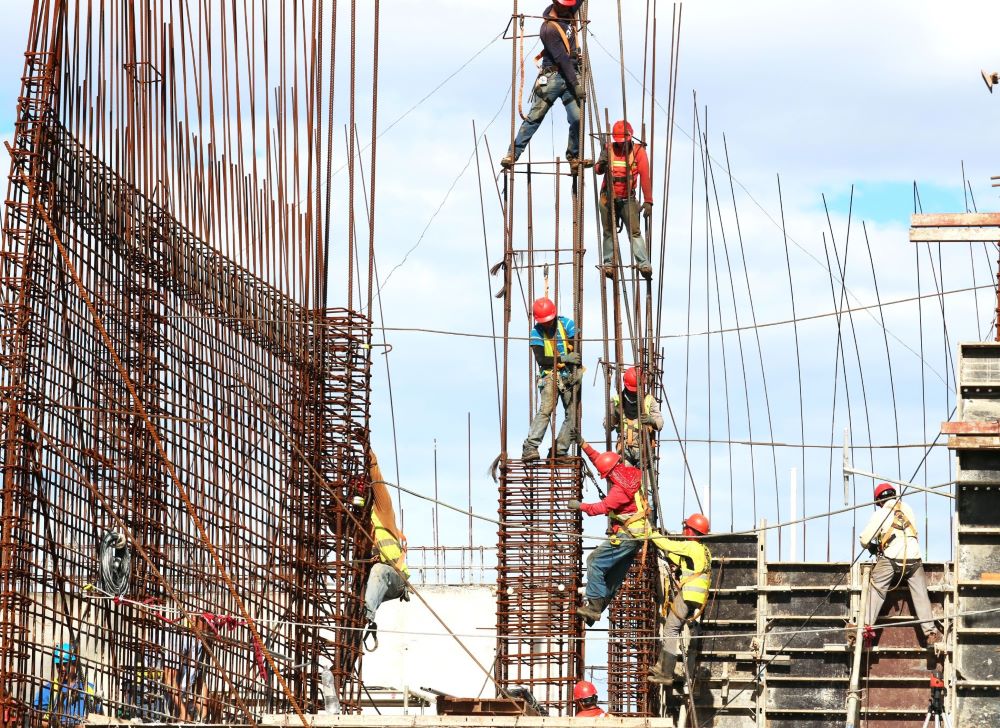Following the economic boom between 1987 and 1996, Thailand experienced large-scale labour migration from Myanmar, Cambodia, and Lao PDR. Today, most of the migrants are from Myanmar. A recent study carried out by UNDP in collaboration with Rapid Asia shows there are significant gaps in the support system for Myanmar migrant workers and suggests additional policy interventions to encourage regular migration.
Thailand’s economic development has been impressive. Between 1987 and 1996, it experienced an average economic growth of nearly 10% per year (Figure 1), driven by a surge in exports and foreign direct investments. The period also marked an expansion in wage disparities between Thailand and its neighbouring countries, transforming the country into a hub for inward migration.

Figure 1. GDP growth in Thailand from 1985 to 2022 (ThaiWebsites.com)
The large-scale labour migration from neighbouring countries has transitioned Thailand from a net-sending to a net-receiving nation for migrant labour. At the same time, Thailand has experienced the lowest population growth rate (0.2% annually) and second-lowest total fertility rate (1.5 children per female) in Southeast Asia. Hence, the demand for migrant labour in Thailand is likely to continue due to demographic changes and continued economic development.
In June 2023, a multi-stakeholder report by several organisations focusing on Myanmar reported that as of April 2023, an estimated 2.5 million regular migrants resided in Thailand. These were documented migrants, who migrated following the laws and regulations, and 75% of them were from Myanmar.
This latest study is the first of its kind to focus on a potentially vulnerable cohort of people who migrated after a political crisis broke out in Myanmar in February 2021. A total of 2,249 Myanmar migrant workers were interviewed of which 63% were documented and 37% undocumented. The report, titled “Seeking Opportunities Elsewhere: exploring the lives and challenges of Myanmar migrant workers in Thailand”, confirms the vital role migrant workers have in the Thai economy. The report also outlines the details of the Royal Thai Government (RTG)’s commitment to the integration of Myanmar migrants through a series of policies.
The report shows that Thailand is a favoured destination for Myanmar migrants but there are still gaps and challenges that persist in the migrant experience which can be addressed. The gaps have been identified through a detailed analysis of the recruitment process, employment and working conditions, and gender equality. The report also examines migrants’ integration, well-being, and access to health and education services. A section of the report also explores the needs and challenges experienced by migrants when they attempt to regularize their status in Thailand. It is worth noting that the fear of deportation emerges as the most pervasive concern amongst migrant workers, whether they are documented or undocumented.
Overall, the study suggests five interventions on how to encourage, enforce, and incentivise regular migration:
- Offering flexible and demand-responsive visa options
- Enhancing healthcare access and mental health support
- Improving workplace practices
- Revising current policies to be more family unity centered
- Implementing best practices of gender equality
The report encourages joint public and private sector engagement to ensure that labour demand is met whilst also making sure migrants are safe, and free from exploitation, and can contribute to both Thailand and Myanmar’s development.
If you found this article useful, please remember to ‘Like’ and ‘Share’ on social media and hit the ‘Follow’ button never to miss an article.
To read more about seeking opportunities elsewhere: exploring the lives and challenges of Myanmar migrant workers in Thailand, please click here.
About the authors: Daniel Lindgren is the Founder of Rapid Asia Co., Ltd., a management consultancy firm based in Bangkok that specialises in evaluations for programs, projects, social marketing campaigns and other social development initiatives. Israr Ardiansyah is an independent consultant working with Rapid Asia.
Photo by Josue Isai Ramos Figueroa on Unsplash

